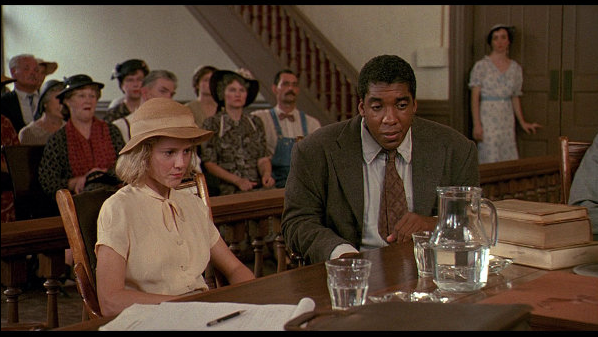
A Journey from Passivity to Power
While much of Fried Green Tomatoes unfolds in flashbacks to the 1930s, the emotional core of the film belongs to Evelyn Couch — a woman trapped not by time, but by expectations. Her transformation from invisible housewife to bold, self-assured woman is one of the most powerful arcs in feminist cinema.
The Invisible Middle-Aged Woman
At the film’s start, Evelyn is everywoman: polite, over-apologetic, constantly dismissed. Her husband barely notices her, society mocks her weight, and menopause looms like a silent ending. She’s the embodiment of what many women in midlife feel — that they’ve outlived their usefulness.
But through her friendship with Ninny and the stories of Idgie and Ruth, Evelyn begins to shed that invisibility — not with glamour or romance, but with agency.
Ninny as a Feminist Catalyst
Ninny Threadgoode isn’t just a sweet old lady. She’s a trickster, a mentor, and a narrator who reawakens Evelyn’s sense of worth. By sharing tales of rebellion, bravery, and sisterhood, she nudges Evelyn into action.
In this way, Fried Green Tomatoes offers a radical feminist truth: intergenerational storytelling isn’t just memory — it’s a map to freedom.
Tawanda! Rage as a Tool of Liberation

One of the film’s most iconic scenes is Evelyn’s primal scream of “Tawanda!” as she rams her car into a pair of younger women who mock her. It’s cartoonish, yes — but it’s also cathartic. The rage of the overlooked is finally unleashed.
This isn’t just a laugh. It’s a feminist scream against years of suppression. “Tawanda” becomes a symbol — not of violence, but of vitality, a reclamation of space and voice.
Self-Redefinition Without a Love Story
What makes Evelyn’s arc unique is that her empowerment isn’t tied to a romantic subplot. She doesn’t lose weight to attract a new man. She doesn’t escape into fantasy. She stays in her life — but transforms how she lives it.
Her goals are modest but revolutionary: confidence, purpose, boundaries. For many women, that is the dream — to stop asking for permission and start living fully.
Legacy and Relevance Today
In an age where midlife women are still underrepresented in film, Evelyn’s story feels more urgent than ever. Fried Green Tomatoes reminds us that it’s never too late to rewrite your story, to rediscover joy, to roar instead of whisper.
Conclusion: Midlife as a New Beginning
Evelyn Couch is not a sidekick. She is the heroine of her own quiet revolution. Her story, rooted in laughter, anger, and courage, offers one of the rarest gifts in cinema: a roadmap for women not at the beginning of life, but bravely in the middle of it.
